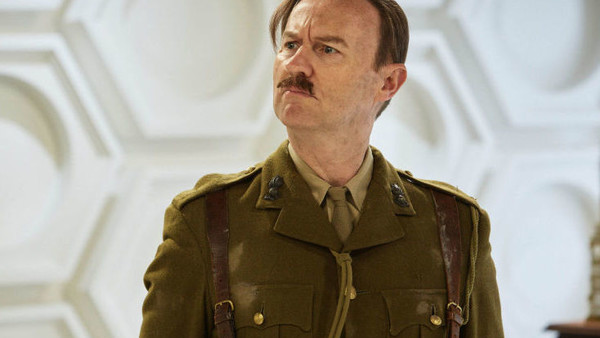Doctor Who Christmas Special 2017: What ‘Twice Upon A Time’ Really Means
9. Splendid Ancestors All Of Them

The revelation that the Captain, played by Mark Gatiss with pleasingly understated realism, was a Lethbridge-Stewart was an unnecessary but lovely touch (on a par with the original plan to make Bill’s housemate Harry in Knock, Knock, Harry Sullivan’s grandson). It provided a visual call-back to the series eight finale Death in Heaven as the Captain and the Doctor salute each other. Exactly where he fits into the family tree of father and daughter Alistair and Kate Lethbridge-Stewart is not spelt out on screen, but in interviews Gatiss reveals he is the original Brigadier’s grandfather.
It’s fair to say that in the specialist world of Doctor Who related spin-offs this has caused some controversy. Holders of the licence for the character of the Brigadier, Candy Jar, have already included the Brigadier’s Grandfather in their series of novels based on the younger Alistair and the two versions cannot be easily reconciled. But rather than get bogged down in debates about canon and continuity, let’s focus on the potential fallout from this revelation for the Doctor.
The reveal comes around the same time in the narrative that the Doctors have decided to go through with their respective regenerations (even though the Twelfth Doctor continues to keep his cards close to his chest). The Doctor’s status as the defender of Earth is intimately tied into his relationship with UNIT, a rocky one that has continued despite the Doctor’s anti-militarism largely on the basis of his early friendship with the Brigadier. The reminders of his old friend, drawn from both his remarkable life and his extraordinary post-death resistance to the Cyber programming, add significant weight to the Doctor being swayed by his companions to regenerate.